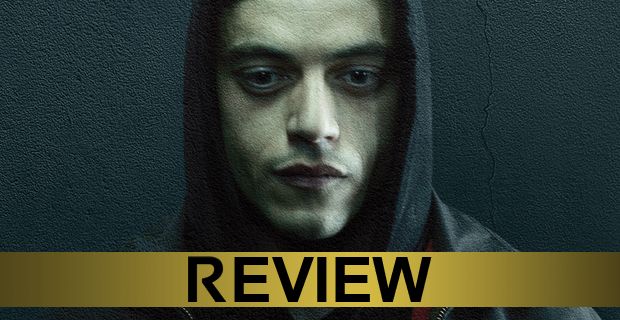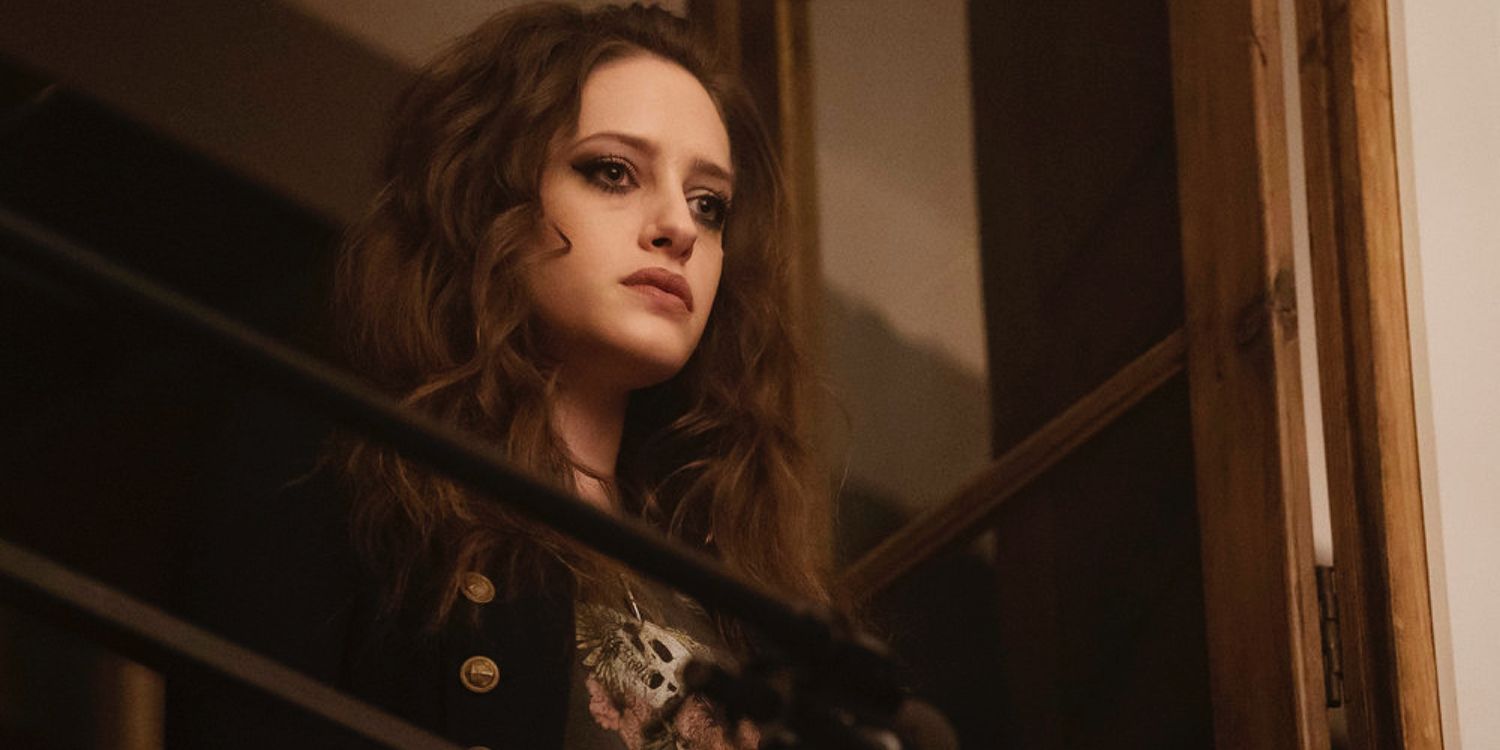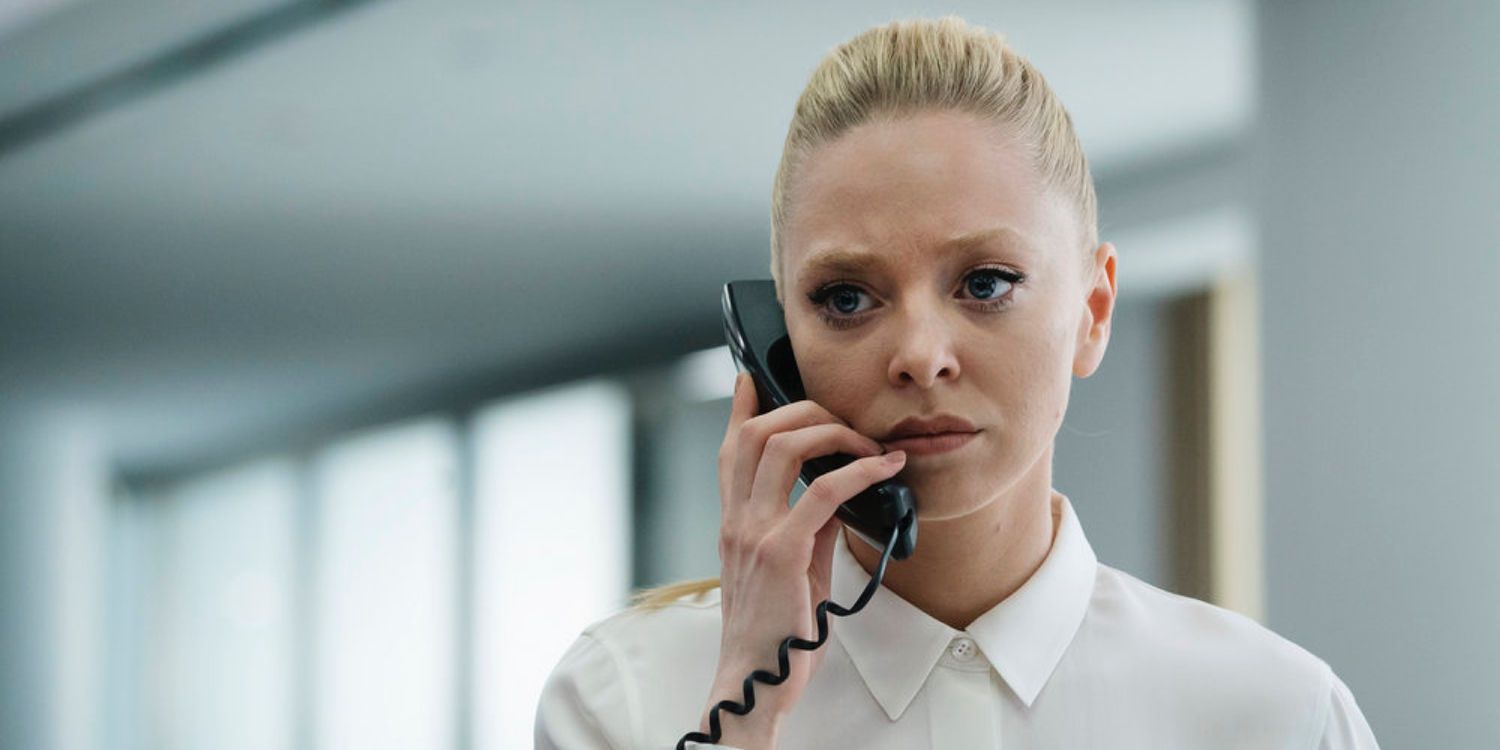[This is a review of the Mr. Robot season 2 premiere. There will be SPOILERS.]
-
The greatest trick Mr. Robot ever pulled was to make viewers think it was all about the twist that was more confirmed than revealed late in season 1. But as the show steered into its pointed and deliberate pop culture-inspired swerve, the series demonstrated a greater breadth and depth than its secondary premise of dual identities cooking up keyboard-based revolutions, and in the process allowed the tech-obsessed cynicism of the series to step up to the forefront and claim its rightful place as the real driving force behind USA's network-altering hit. It was a clever gesture that hooked audiences and turned an under-the-radar summer TV show into a veritable water-cooler program, as gifted at tapping into the zeitgeist as it was exploiting current events for its own narrative gain. And as the series steps into season 2, it faces a number of new challenges that its unique storytelling style, clever narrative structure, and striking visuals are well-suited to meet.
Mr. Robot presents a new and welcome variable into the otherwise familiar antihero equation. Its expressive visual language and outstanding performances by everyone from series star Rami Malek to Christian Slater, Carly Chaikin, Portia Doubleday, and so on, act as a buffer of sorts from the sometimes-heavy material on display. Malek, in particular, has proven adept at affording the series a sense of vulnerability and raw emotion that its austere narrative ambitions might otherwise have little room or use for. And in embracing Malek's performance, the tendency of the series to indulge in certain stylistic and compositional excesses creates a more compelling viewing experience.
Creator Sam Esmail has taken the reins completely this season, with regard to writing and directing, allowing for a greater sense of authorship and aesthetic cohesion. Such a thing has become requisite for television programs to stand out amongst the glut of good-to-great programming that is up and down the programming guide, especially now that the once arid wasteland of summer has become just as bountiful, if not more so, than the once all-important fall TV season. The effects of Esmail's now top to bottom influence on the series makes itself known early in the second season. The result is a series ready to define itself again on its own terms, largely through the expanded scope of its artistic ambitions – the love of negative space looms large in season 2 -- and the question of whether or not there is more to the story of Elliot, Mr. Robot, f-society, and the brave new world they (or really, just Elliot) have in mind whenever they sit behind a computer.
Creator Sam Esmail has taken the reins completely this season, with regard to writing and directing, allowing for a greater sense of authorship and aesthetic cohesion. Such a thing has almost become requisite for television programs to stand out amongst the glut of good-to-great programming that is up and down the programming guide, especially now that the once arid wasteland of summer has become just as bountiful, if not more so, than the all-important fall TV season. The effects of Esmail's now top to bottom influence on the series makes itself known early in the second season. The result is a series ready to define itself again on its own terms, largely through the expanded scope of its artistic ambitions – the love of negative space looms large in season 2 -- and the question of whether or not there is more to the story of Elliot, Mr. Robot, f-society, and the brave new world they (or really, just Elliot) have in mind whenever they sit behind a computer.
What's striking about season 2 is the way the show expresses an interest in exploring the fallout of the events of season 1. This is true not only of Elliot but also of the Five/Nine hack that has the world on the brink of an economic meltdown and regular people are suddenly trying to get their hands on actual cash (an increasingly foreign concept in our debit-card driven, PayPal-loving world). Meanwhile the non-regular folks of f-society are celebrating by castrating the Charging Bull sculpture – a mascot for Wall Street and its traders – until Darlene advises against such self-aggrandizing actions. The first hour delivers the sort of catching-up you'd expect from a series like this: Darlene is now solely in charge of f-society, while Angela has sold her soul to E Corp, and Elliot is completely offline, living in an "analog nightmare" in a futile attempt to kill off Mr. Robot, who spends most of his time putting a bullet through Elliot's troubled brain.
As the big idea of 'Part One' is that the world at large and all the main players in the series are picking up the pieces, seeing the core cast scattered as it is makes for a compelling starting place. Much of the power in the first season came from the idea that there was something the audience wasn't aware of. And now, Esmail flips that notion on its head by deliberately keeping Elliot from addressing his "friends" because they (we) withheld key information from him. Elliot's lack of trust gives a clever spin on the use of voiceover as a narrative device; it restricts the amount of information the viewer has and makes the loss of time Elliot experiences when apparently talking to Craig Robinson's Ray after Mr. Robot hijacks his body a key development we are not included in. It is essentially a repeat of last season's trick – to limit how much the audience knows about what's going on, while doubling-down on the idea of Elliot being an unreliable narrator – but this time, instead of obfuscating it or teasing whether or not there's even a curtain to pull back, Esmail is simply acting as the burly doorman, denying the viewer and his protagonist entrance into the room where all the decisions are actually made.
Although it feels different, it's not exactly a new way of looking at things. If nothing else Mr. Robot has constructed for itself a world (or a representation of a world) that is the manifestation (either real or imagined) of its characters' damaged minds and these constraints on information and details, like what happened to Tyrell Wellick, is just version 2.0 of the Mr. Robot mystery machine. That may have been the driving force of season 1, but here it takes on a much more sinister role. What was once presented as an element of Elliot's power – the freedom to do as he wished, to give into his id and create a revolution cooked up by a part of his partitioned mind – is now a problem he's chosen to combat by logging off and living his day under a strict routine of diner meals with Seinfeld-obsessed Leon (Joey Bada$$), church groups, and neighborhood basketball games. But these things can't remain repressed forever, like the social outrage that leads to Gideon Goddard's shocking murder in a Manhattan bar, Elliot's other half can only sit by for so long without acting.
It all makes for one of the best series on TV at the moment and maybe one of the most vital. Beyond the artistic impulses of Mr. Robot and the show's love for crafting a twisty narrative stands a series that has ideas on its mind about the world we all live in now. And while the world presented within the confines of the series' narrative is about as heightened as you can get without undermining the message, its germaneness to the world on the other side of the television screen may be the show's real secret weapon. Although it doesn't hit a bull's-eye with every reference or overtly barbed remark, it's impossible to ignore that the series has something to say. And with Esmail doing most of the talking this season, it's a good bet Mr. Robot will continue to prove it is more than "that show with a twist."
Please join us in the comments section to discuss Mr. Robot season 2. We'll have a full review for you shortly.
Next: Mr. Robot Season 2 Primer: What to Remember From Season 1
Mr. Robot continues next Wednesday with 'eps2.1_k3rnel-pan1c.ksd' @10pm on USA.



